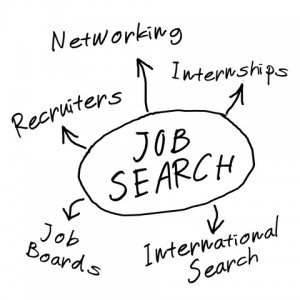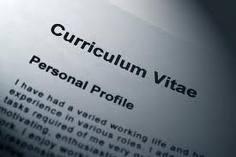Can NLP & Conversational Hypnosis Work In Job Interviews?
Are you like others who wrongly believe that the job interviewer will hire you on your skills and experiences? The truth is your skills and experiences got you the job interview but your attitude, personality and chrism is what will secure that all important, often life changing job offer.

NLP using language patterns that can influence the job interview, they are easy to learn but highly powerful. Today I will share with you several patterns you can use in your next job interview, enabling you to influence the job interview.
Eliciting Values
The first step is to understand what the person who is interviewing you values? We can check the job specification, we can research the company mission, but you need to know what will influence your interviewer?
Ask the interviewer “what type of person are you looking for?” then listen to the employer’s criteria, use this same criteria as part of your next interview answer.
The ideal place to do this is during the walk from the reception to the interview room, you can start by making small talk, “this is a great location for a business..” the employer will mumble something, agreeing with your statement. Then ask, “Have you been interviewing all day?” the reply may be “yes your the third person I’ve interviewed today” and then ask, “and what type of person are you looking for?” this is the key time to listen “well, I really need someone who can bring creative ideas to the team..” now armed with this expert insight, you can answer the interview question mentioning how creative you are, or by giving some real life creative ideas.
Hypnotic Rapport Building
People like people who are like them. Ask the interview talks about the company, during their sales pitch to entice you to work for them, agree with what they are saying. “We encourage team work, as we believe that in a team your creative juices will flow..” you can agree by, “it sounds really interesting, I agree with what you said regarding the team work, in my last position at the beginning of any new project I would first put a team together to come up with creative idea, the idea being that ‘that there was no wrong ideas’ people could suggest anything and it would go on the board, sometimes some silly ideas came out but the objective worked, by everyone looking at the project from a creative viewpoint we would quickly come up with an idea that would work, this process save time and really inspired the team to want to make the project a success”
Again you are listening to what the employers deems valuable and your saying “I do/believe that to”
There are many ways to deepen rapport, which are covered in the amazing book the 73 rules for influencing the interview, but the easiest way to get anyone to like you is through a smile. Now this seems old hat, maybe? But the science for this is real, when psychologist has wired people up to monitor the neutrons in the brain, something amazing happened. When you smile your mussels are pulled in such away that your neurons fire and you feel good about yourself, but what’s even more amazing is, when the person who sees you smile is also wired up the psychologist discovered that there happy neurons also fire just by seeing you smile.
You have probably seen this in action when you see an adult looks at a baby, as the baby smiles, the adult cannot help but to also smile. Don’t underestimate the smile, it is a powerful rapport builder and often underused in the job interview.
Future Pace the Job Outcome
People, who successfully diet and lose weight, do something completely different to those thousands of people who start to diet and then give up. The secret is that successful people in all areas of life, visualise the outcome, the dieter doesn’t see themselves dieting they visualise themselves being fit, healthy and thin.
For the successful interviewee, you need to influence the interview by making the employer visualise you being successful in their company. You have most likely already read the 73 rules for influencing the interview, which covers a large amount of ways to influence the interview outcome, but for now you can flow these 3 simple steps:
Step 1 – talk about the future not the past; it’s good to highlight your past successes a little, but in reality people aren’t interested in what you did, they want to know WHAT YOU WILL DO for them. They want to know how you will make a difference, how you will use your skills to make their organisation successful and how by hiring you they will increase their profit. Whenever possible future pace, “Yes I’m an excellent team leader, to increase the team’s productivity and moral, I will A, B and C…”
Step 2 – It’s not I it’s we; your goal at this stage of the interview is for the interviewer to imagine you working successfully for their company. When answering interview questions, interviewees will often say “I did X..” “I was able to..X” or by using the future pace above “I will do X..” To create a stronger bond, every so often change the “I” to a “we” this change in the referral index will most likely go unnoticed, but because the mind makes images out of the words you hear, this slight change of context will change the image in the interviewers mind. Rather then seeing you being successful working for them, the interviewer will now see both of you being successful and this is highly motivational.
“I agree, it’s really important to have a motivated team, when I’m managing the team I will carry out regular appraisals with the team, this is chance for each individual to get positive feedback on what they have achieved over the past month, and to look at new ways to further improver their performance. I have used this method in past positions and it has a constant result in improving team motivation by 25% which results in us meeting our targets.”
In this example the answer ends with “…which results in us meeting our targets” instead of “results in me meeting my targets” now this slight change in wording has altered the interviewers vision, he might see himself getting praise for hiring you and meeting the targets. As long as the image is positive he will associated that positive feeling with you, when he thinks of you later when deciding who to hire, he will remember feeling good about you and your answers and he probably won’t even remember this image that popped into his head!
Step 3 – Ask future Pace Questions; at the interview end you will be given the chance to ask some questions. This is another chance to ask a future pace question, to get the employer to visualise you being successful while working for them.
“What’s more important to you, me having creative ideas or me being able to implement the ideas?” this is a great double bind question, no matter what answer they pick they have to see you being creative or implementing creative ideas and when they answer you can agree with them “I agree having creative ideas will help drive the business..” “I agree you have to be able to implement the ideas…”
“Imagine you recruited me, what would I being doing in the first couple of weeks?” the employer now has to imagine they recruited you
“If you offered me the job, what would I need to do to prove to you that you had made the right decision to choose me?” Again the employer has to visualise you working for them.
“Imagine the we had a great couple of years working together, and as a team and business we were really successful, in what directions can see the business growing?” there answer doesn’t matter to much, as long as they think about you being successful together
If you enjoyed this article you will also enjoy reading:







